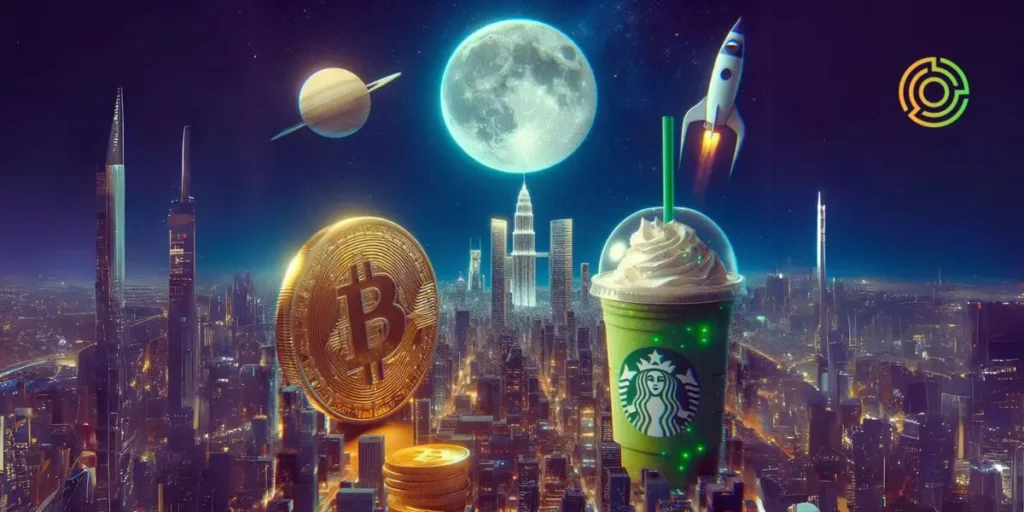The cryptocurrency market’s volatility has been at the forefront of news this week, significantly affecting the NFT sector. While other aspects of the market have seen positive developments, the sales sector bore the brunt of the impact.
Market Turbulence and its Effects
Bitcoin faced significant sell-offs, leading to continuous price slips in the cryptocurrency market. This trend was mirrored across other sectors, with NFTs and decentralized finance being particularly vulnerable.
A Downturn in NFT Sales
The virtual currency market experienced considerable corrective pressure amidst its upward trend. Bitcoin’s price slipped multiple times, dipping well below $66,000 after reaching peaks above $73,000 per coin.
Such abrupt movements have raised concerns within the NFT sector, leading to a 16.55% decline in sales, according to data from Cryptoslam. Ethereum dominated sales with $129 million, marking a 20.98% decrease from the previous week.
Sector-specific Insights
Ethereum
Sales on the Ethereum network amounted to $129 million, with a weekly decline of 20.98%.
Bitcoin
The Bitcoin network saw sales of $124 million, experiencing a weekly decline of 20.44%.
Solana
Solana witnessed a marginal 5% decrease in sales, totaling $61.68 million. Notably, Solana’s trading volume continues to rise steadily.
Despite Solana’s resilience, the week ended unfavorably for NFT sales, as evidenced by major news outlets.
Positive Developments in the NFT Sector
SuperRare’s Expansion
SuperRare, an NFT trading platform originally based on Ethereum, made headlines by expanding into Bitcoin. This move, marked by the launch of a new Ordinals collection by renowned artist Killer Acid, signifies a positive step for the NFT trading landscape.
GM Ordinals👋 pic.twitter.com/lFIAfNYnEh
— SuperRare 💎 (@SuperRare) March 14, 2024
Partnership with Gamma
SuperRare’s collaboration with Bitcoin marketplace Gamma for the Ordinals collection launch on April 11th marks a significant milestone. While specific details regarding the collection size remain undisclosed, anticipation for this project remains high.
Starbucks’ Beta Program Conclusion
Starbucks announced the conclusion of its beta program, Odyssey, which offered NFT-based rewards. Despite this, Starbucks’ venture into blockchain-based collectibles may continue in the future, with hints at a potential new rewards program.
Conclusion
In summary, while market volatility posed challenges for the NFT sector, there were notable positive developments. SuperRare’s expansion into Bitcoin and Starbucks’ exploration of blockchain-based rewards signal ongoing innovation within the NFT space.
FAQs
What are NFTs?
NFTs, or Non-Fungible Tokens, are unique digital assets that represent ownership or proof of authenticity of a specific item or piece of content. Unlike cryptocurrencies such as Bitcoin or Ethereum, which are interchangeable and have equal value, NFTs are one-of-a-kind and cannot be replicated.
How do NFTs work?
NFTs operate on blockchain technology, which is a decentralized digital ledger that records transactions across a network of computers. Each NFT contains metadata that provides information about the digital asset it represents, including its creator, ownership history, and any associated royalties.
What can be turned into an NFT?
Virtually any digital file can be turned into an NFT, including artwork, music, videos, tweets, virtual real estate, and even virtual goods in video games. The key requirement is that the digital content has value or significance to potential buyers or collectors.
How are NFTs bought and sold?
NFTs are typically bought and sold on online marketplaces that specialize in digital collectibles, such as OpenSea, Rarible, or SuperRare. Users can browse through listings, place bids on items, or purchase them outright using cryptocurrency. Once a transaction is completed, ownership of the NFT is transferred to the buyer’s digital wallet.
What is the significance of market volatility in the NFT sector?
Market volatility, especially in major cryptocurrencies like Bitcoin and Ethereum, can have a significant impact on the NFT sector. Fluctuations in cryptocurrency prices may influence investor sentiment and purchasing power, affecting the demand for NFTs and their corresponding prices.
Are NFTs a good investment?
The investment potential of NFTs depends on various factors, including the quality and uniqueness of the digital assets, market trends, and individual risk tolerance. While some NFTs have sold for millions of dollars, others may fail to retain their value over time. As with any investment, thorough research and caution are advised.
What are some examples of successful NFT projects?
Successful NFT projects span various categories, from digital art to collectible trading cards and virtual real estate. Examples include Beeple’s “Everydays: The First 5000 Days,” Cryptokitties, NBA Top Shot, and Decentraland.
How do I create my own NFT?
To create your own NFT, you’ll need to choose a blockchain platform that supports NFT creation, such as Ethereum or Binance Smart Chain. Then, you’ll need to create or upload your digital content, mint it into an NFT using a compatible marketplace or platform, and set parameters such as royalties and pricing.
What are the environmental concerns associated with NFTs?
NFTs have faced criticism for their environmental impact, particularly due to the energy-intensive process of blockchain validation known as “proof-of-work.” Critics argue that the energy consumption associated with NFT transactions contributes to carbon emissions and exacerbates climate change. However, some blockchain networks are exploring alternative consensus mechanisms with lower energy requirements.
Can NFTs be used for purposes other than art and collectibles?
Yes, NFTs have potential applications beyond art and collectibles. They can be used to tokenize real-world assets such as real estate or intellectual property rights, create unique digital identities, facilitate decentralized finance (DeFi) transactions, and more. The versatility of NFTs opens up a wide range of possibilities for innovation and experimentation in various industries.
Follow us on our social networks and keep up to date with everything that happens in the Metaverse!
Twitter LinkedinFacebookTelegramInstagramGoogle NewsAmazon Store
Recent Posts
- Machine Learning vs. Deep Learning: What’s the Difference?
- AI for Beginners: Demystifying Artificial Intelligence for Parents and Educators
- Crypto 101: Your Ultimate Beginner’s Guide
- A Day in the Life of a Crypto Trader: Routines, Psychology, and Profitable Habits
- How to Research a Cryptocurrency before Investing
